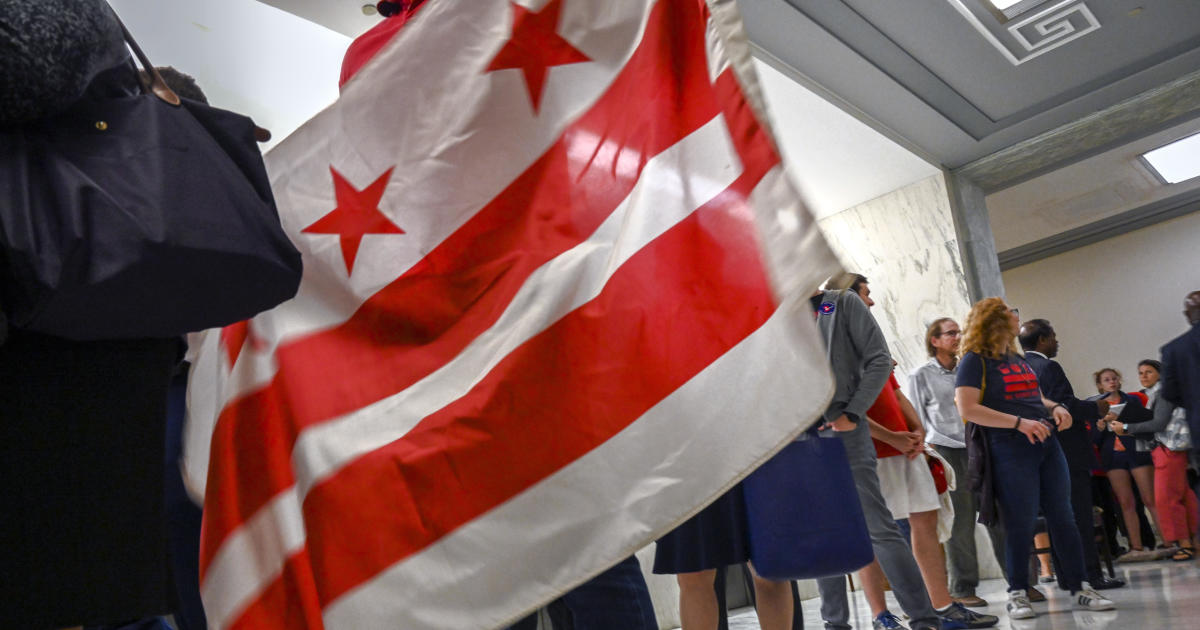
House approves bill that would admit Washington, D.C., as 51st state
CBSN
Washington — The House voted Thursday on a bill that would admit Washington, D.C., as the 51st state, although the measure is likely to fail in the evenly divided Senate. The legislation passed along party lines with a vote of 216 to 208, with no Republicans voting in favor.
For the bill's advocates, D.C. statehood is a civil rights issue. The district has a population of more than 700,000 people, larger than the population of Wyoming or Vermont. But while those two states each have two senators and a representative in the House, D.C. has no voting representation in Congress. Eleanor Holmes Norton represents D.C. in Congress as a non-voting delegate. Statehood advocates also point out that D.C. pays more in federal taxes than 21 states and more per capita than any state, according to 2019 IRS data. The district is also diverse, with a population that is 46% Black and majority nonwhite. If admitted, it would be the first state with a plurality Black population.More Related News
